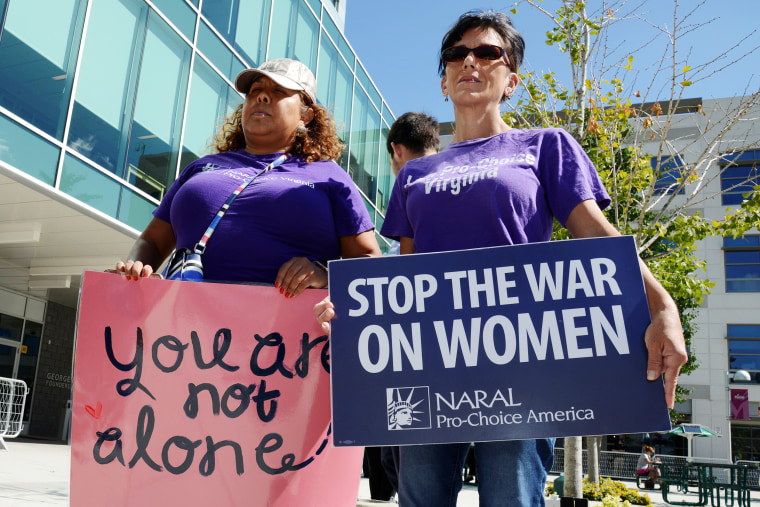Education Secretary Betsy DeVos turned her intention to rescind Obama-era Title IX guidance into action on Friday, leading advocates of college sexual assault survivors to worry that it could unfairly shield those accused of sexual misconduct.
The biggest change included in the Department of Education’s interim guidance is that it allows universities to modify the standard of evidence in campus sexual assault cases — an update championed by supporters of accused students who they claim are not offered a fair judicial process.
The new guidance allows schools to move from a preponderance of evidence model to a “clear and convincing standard” of proof. The sentence in such cases does not necessarily carry legal implications but can lead to school disciplinary actions and expulsion.

“This interim guidance will help schools as they work to combat sexual misconduct and will treat all students fairly,” DeVos said in a statement.
While she wants sexual misconduct to be tackled “head-on” on college campuses, DeVos added that she believed the process needed to be more equitable to those accused such actions.
College disciplinary lawyer Kimberly Lau, who has defended a number of accused students, said that while the previous guidelines were based on good intentions, "the unintended consequences were that it did have the deck stacked against the accused students."
"Walking into the process as an accused student, already many of my clients were feeling as if they were guilty before proven innocent," she said.
Related: Betsy DeVos to Overhaul Obama-Era Title IX Guidance on Campus Sex Assault
Despite the new interim guidance, campuses will be allowed to determine whether to implement the new evidence standard.
National Association of Student Personnel Administrators President Kevin Kruger said that the campuses didn’t ask for that autonomy and likely wouldn't change their own standards, but he said they welcomed a Title IX reset.
“I think the higher ed community has for years wanted an opportunity for review and comment around guidelines related to sexual assault,” he said, adding that the relationship between colleges and the Education Department’s Office for Civil Rights, which enforces Title IX, had grown toxic.
But Kruger, who noted that the higher ed community saw the changes coming, also acknowledged that there were a fair amount of negatives to the new guidance.
Sen. Patty Murray, D-WA, sent a letter to DeVos last week signed by 29 U.S. senators who claim a change to campus sexual assault investigation guidance would lead to “chaos and confusion.”
After Friday’s announcement, Murray went a step further, alleging that DeVos had ignored the pleas of sexual assault survivors and was allowing “predators to continue to roam college campuses.”
“She must reverse this decision immediately, instruct schools to take claims of sexual assault seriously, and start standing up for survivors,” Murray added.
Related: Title IX Reform: Advocates Await New Guidance From DeVos on Campus Sex Assault
And that concern is shared by women’s rights activists and leaders.
“I, from the very beginning, encouraged her to meet with survivors and hear their experiences and take her time with this,” said National Women’s Law Center President and CEO Fatima Goss Graves. “This is not something to rush out. This [guidance] is a mess. This is only creating confusion and may lead to systems that in affect punish survivors.”
Goss Graves is worried that this new guidance will discourage students from reporting sexual assault and make schools uncertain about how to move forward with sexual misconduct cases. The guidance could even allow for the accused to question their accusers in a trial setting, a more than discomfiting prospect for victims, Goss Graves said.

And beyond that, she said the text of the guidance is obfuscatory.
“This guidance document is entirely confusing and will be extremely confusing going forward,” Goss Graves said. “It makes some pretty significant changes, many of which that are very much buried in a lot of text. One pretty major change seems to be buried in a footnote.”
The footnote Goss Graves referred to says, “The standard of evidence for evaluating a claim of sexual misconduct should be consistent with the standard the school applies in other student misconduct cases.”
Upon that footnote hinges a campus' evidence requirements and investigatory necessities, potentially causing sexual assault cases to be conducted and require evidence in a comparable manner to cheating or plagiarism cases, according to Goss Graves.
The Department of Education said that it plans to continue to speak to "survivors, campus administrators, parents, students and experts" about sexual misconduct as they finalize and craft a new and permanent Title IX regulation.
"We also will continue to work with schools and community leaders to better address preventing sexual misconduct through education and early intervention," DeVos said.
